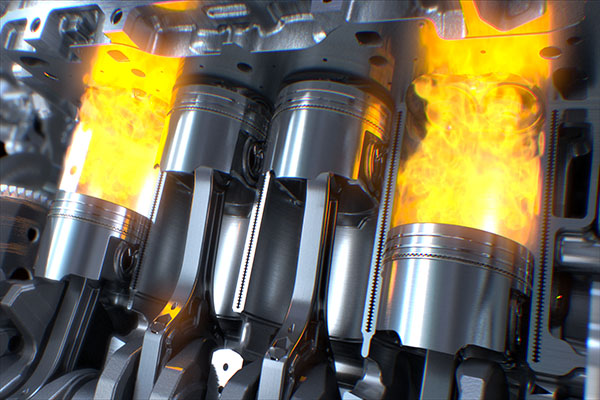
Engines are what power the vehicles we drive and see on the road. They have a lot of moving parts, complex electronics, and sensors that work together to make them work smoothly. But how do they work exactly? Why are they split into two types: diesel and gasoline? We will answer exactly these two questions while still sticking to a simple and easy-to-understand explanation. Continue reading if you want to learn more about how engines work.
Diesel Engines
Diesel engines are typically stronger and produce more torque, which is beneficial when carrying heavy loads or towing. To make things easier, we'll look at the main processes that happen in it, so here they are:
The first step all engines go through is the intake of air. It is usually collected from the outside by the different openings your vehicle might have. When the air is collected, it is injected into the cylinder alongside the fuel. When the mixture is in the cylinder, it starts to move up (compress). Then the mixture is ignited by the high temperature caused by the pressure buildup. The leftover gasses from the reaction are exhausted either by a catalytic converter or a turbo (which spins and pumps in more fresh air)
Gasoline Engines
On the other hand, gasoline engines are very powerful and have a big horsepower output. They are seen in performance cars, coupes, and in general, vehicles that need a lot of power. Here are the main processes that occur in a gasoline engine:
The first step, just like in a diesel engine, is air. The fuel injectors inject fuel after the air has been filtered and distributed to the cylinder. The main difference is that in gasoline engines, ignition occurs with the help of a spark provided by the spark plugs. Excess gasses are exhausted and ejected from the cylinder.
Which Is Better?
The question of whether gasoline or diesel is better ultimately depends on individual needs and preferences. Gasoline engines are generally more suitable for daily commuting and city driving, as they offer smoother acceleration and quieter operation. They are also more widely available and offer a wider range of vehicle options.
On the other hand, diesel engines are known for their higher torque and better fuel efficiency, making them more suitable for towing and long-distance driving. Additionally, diesel fuel often costs less than gasoline. Ultimately, the choice between gasoline and diesel depends on factors such as intended use, fuel efficiency requirements, and personal preferences.
ENGINE REPAIRS AND MAINTENANCE AT DON LEE'S TIRE & AUTO!
If you are looking for some of the best engine repairs in the state, Don Lee's Tire & Auto is the answer! Our team will be happy to help out with any engine or vehicle-related problems that are bothering you! Book an appointment online or call (984) 205-4068 today!